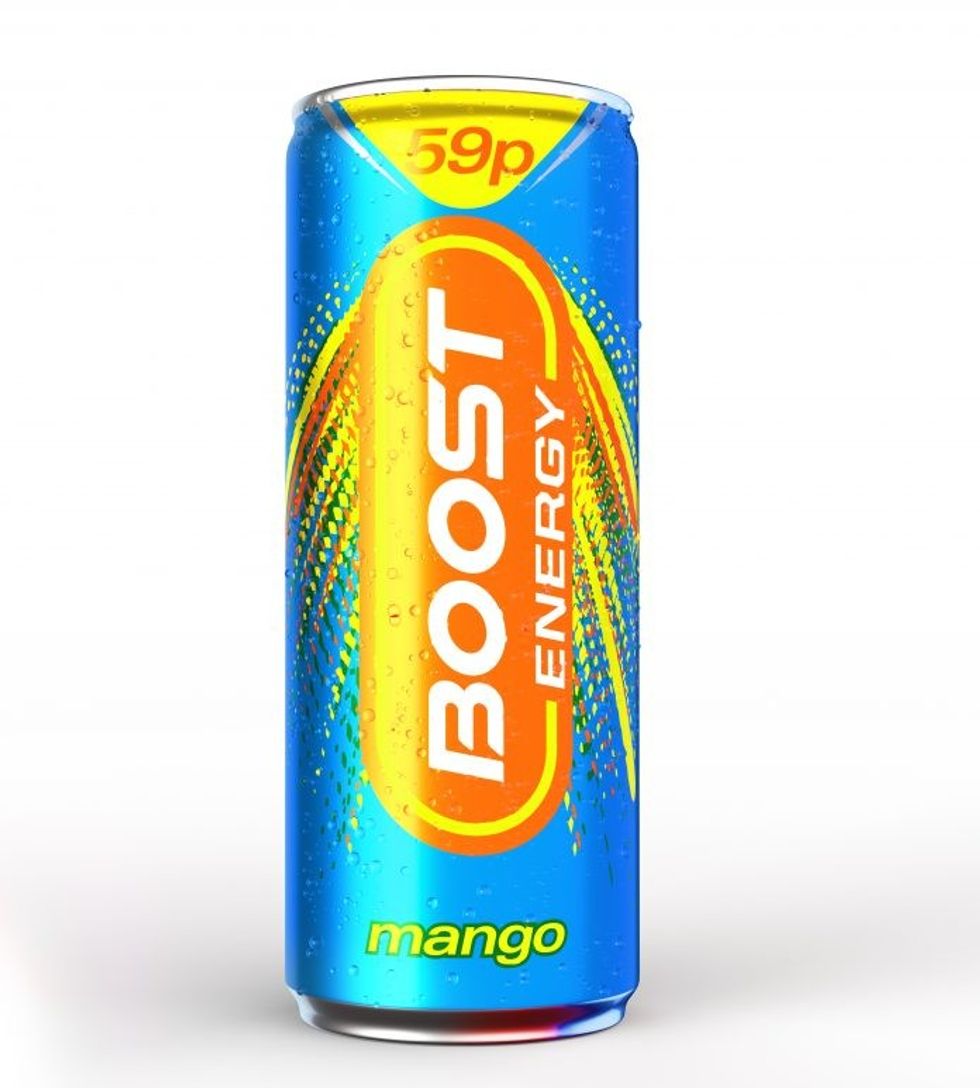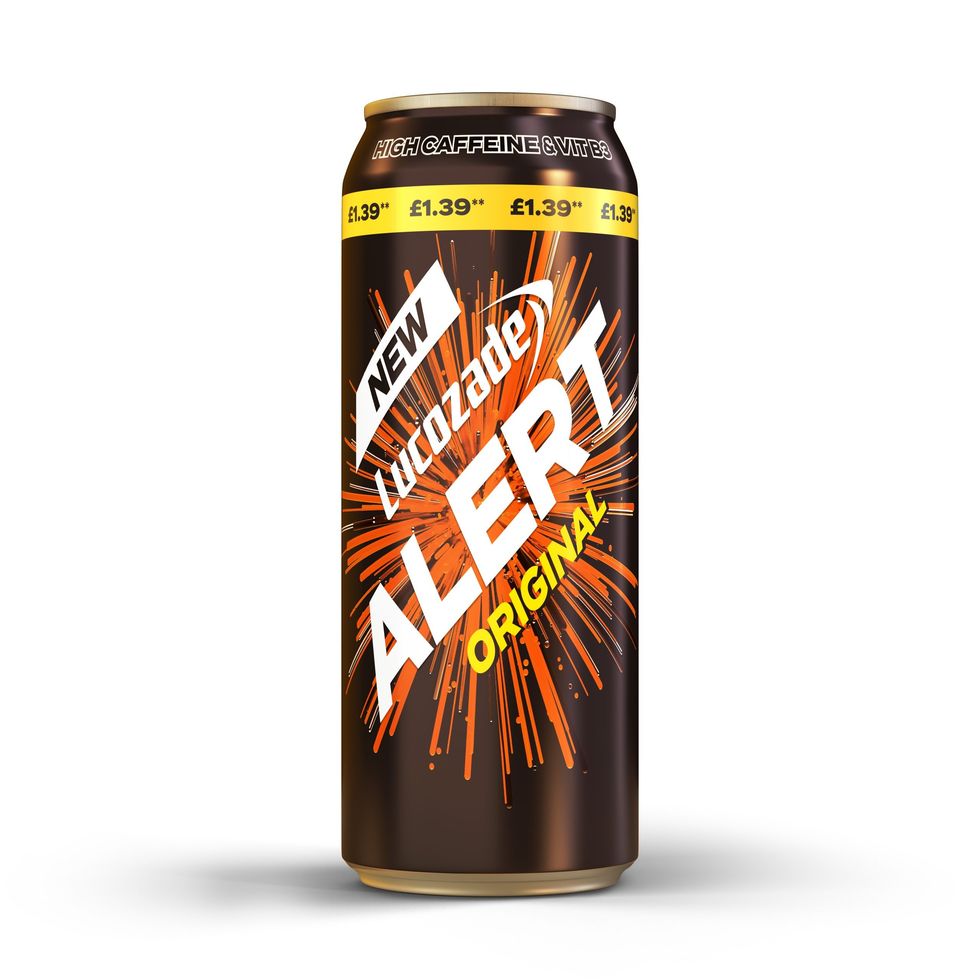Gone are the days of mindless consumption of high-calorie lemonades and sugary orange juices. Britons now seek something more “functional”, rehydrating and energising after grueling gym work out or a sport session or simply after a long exhaustive day at work.
Adults in our country have always been fond of sports and energy drinks. While sports people and gym-goers traditionally have been the ones to consume those drinks routinely to improve performance, endurance, and alertness, long and erratic working hours too are now driving almost everyone more and more towards such products.
Moreover, energy drinks are nowadays increasingly being used as mixers for alcoholic beverages- a factor which is further pushing the sales.
Interestingly, such drinks also seem to be a good answer to the question of what to drink when “not drinking” in a social gathering.
No wonder, sports and energy drink aisle in retail stores have swelled over recent years. Coupled with better widespread penetration and more available options, these products are a part of almost every shopping list, thereby presenting a huge scope for store owners to generate good sales.
What’s happening now
Energy and sports drinks claim a major market segment among the young population in the country.
Be it a rehydrating thirst quencher or a refreshing ‘pick-me-up’, sports and energy drinks, consumers firmly believe that these products indeed offer a ‘little something extra’ to help them get through their days. The belief can be corroborated with the fact that the UK gulped down a combined 836 million litres of energy and sports drinks in 2020, as per Statista report, which also mentions that the combined consumption has been constantly on the rise since 2013.
Data analyst Mordor expects the UK sports drink market to grow at a CAGR of 4.0 per cent in the forecast period 2020-2025 while energy drink market is projected to register a CAGR of 4.3 per cent.
However, with constant evolution and innovations by the makers, lines between energy and sports drinks are increasingly getting blurred over the past years. In fact, industry experts and leaders regard sports and energy drinks as a single sector, including a marketing director of GlaxoSmithKline- which earlier used to own the UK's biggest sports drink brand, Lucozade.
Whatever the nomenclature is, this segment is roaring, making up for approximately 5 per cent of the total soft drinks sales, estimating to be a £1.6 billion-market.
Red Bull- UK’s leading sports and energy drinks- claims that growth in sports and energy category outstripped the overall growth in soft drinks category.
“These drinks have added over £188m vs 2020 and have approached the billion-pound segment, today worth over £1.1bn annually. The consistent performance of ‘functional’ in the category has ensured that Sports & Energy has remained in growth, with Functional Energy the fastest growing segment in Soft Drinks at +20.2% YTD.”
Currently, the country’s energy drinks market is highly consolidated, with the major share held by few players, namely Red Bull GmbH, PepsiCo Holding, and Monster Energy.
As of 2021, the leading energy drink brands in the country by retail sales revenue was Red Bull owing to approximately £256 million worth of sales, as per Statista. Its leading competitor is Monster, which generated approximately £204 million last year.
Boost is also riding the popularity ladder here at a quick rate and is emerging as another popular option in sports drinks.
Adrian Hipkiss, Marketing and International Business Director at Boost Drinks, reveals that Boost is a go-to choice for consumers in the stores, where its range is stocked.
“We are also the number two largest selling sports drink brand in both value and volume, selling over 25 per cent more-unit sales than number three brand, and we are – where stocked – the third largest selling Energy & Sports drink brand, something which we are incredibly proud,”
Hipkiss hailed Boost Energy Original as “number one 1ltr energy stimulation drink in independent retail, accounting for 91 per cent of the channel’s total 1ltr energy stimulation unit sales”.
In fact, according to recently-released PayPoint’s latest Convenience Basket Register, Lucozade Energy Orange and Boost Sport Orange are among the top ten selling products in the UK while sales of energy drinks is said to have “significantly attributed” to growth in grocery sales in c-stores.
Product development, penetration into retail channels, mergers and acquisitions, joint ventures and other strategic partnerships for bottling and distribution are major strategies used by the makers in this segment- basically everything and anything to win the consumers’ hearts.
Over the past five years, however, the industry has been increasingly shaped by rising health consciousness as NHS and other health organisations are lobbying makers to reduce the sugar content of their products, thereby prompting product reformulations and innovations.
Trends and Innovations
It is seen that daily gym-goers, hardcore sports-oriented people and extreme fitness freaks tend to incline more towards products like high-protein beverages and isotonic drinks while general health-conscious public tend to be more open to new flavours. However, with constant product evolution and use of innovative “functional” ingredients, the lines between the user segments are increasingly getting blurred.
In fact, makers seem to be involved in some kind of race here where each one is investing heavily in research and development to come up with newer and interesting products to entice and hopefully hook on the users.
Major evolution is happening in the flavour department. Manufacturers are endlessly coming up with stimulating and interesting tastes in this space which until very recently, was known for a unique blandness and a typical aftertaste.
They seem to be driven by obstacles pointed out by market reports such as one by Mintel which claims that top reasons for consumers rejecting energy drinks are the high caffeine levels (33 per cent), use of artificial ingredients (37 per cent), and high sugar content (48 per cent) while many reject them as they simply find the taste unappealing.
Clearly, companies are driven to counter all these obstacles as it is evident by their focus on coming up with new flavours as well as low-sugar drinks with natural ingredients.
Buyers too are ready to explore more flavours. Newer the better!
Hipkiss from Boost Drinks states how flavours continued to be a big trend in 2021, particularly in the soft drinks sector.
“Flavours now make up 36 per cent of the stimulation market 9 and are in 27 per cent growth year-on-year, with more than a third of shoppers revealing they make their purchase based on flavours alone,” Hipkiss told Asian Trader.
“This has been a driving force for us at Boost with the introduction of our Mango Energy flavour in April 2021, a flavour that’s growing 22 per cent YoY.”
At the recent launch of a new range of Monster energy drinks, Simon Harrison, vice president- commercial development at CCEP GB, also acknowledged that there is a huge demand for “new and exciting flavours, including in the low calorie energy segment”.
Clean label is another buzz word here. Reacting to consumers’ sentiments, makers are now coming up with clean labels as it is seen that sports and energy drink buyers tend to prefer products that are made from organic and natural procedures and minimal ingredients.
Rising health-consciousness along with alarmingly-rising rates of lifestyle diseases are making health-oriented consumers drift heavily towards sugar-free drinks. This change in consumer preferences is making the manufacturers go for product innovation to develop a range of novel products.
In fact, the UK was the first global market to launch a new formulation of Gatorade, which contained no artificial colors, flavors, sweeteners, or preservatives.
Companies such as Coca-Cola and PepsiCo are also riding this wave and have introduced sports drinks made from organic ingredients, sugar alternatives, and infused with vitamins and minerals.
Energy category has been one of the fastest-growing segments for Coca Cola in the country, mainly due to the phenomenal success of Monster Energy. The company continues to focus on low- and zero-sugar variants through Monster Ultra White, the best-selling variant in the Monster Energy range.
In 2018, Red Bull also expanded its product portfolio by launching Red Bull Sugar-Free to cater to the demands of health-conscious consumers looking for healthier alternatives.
By expanding Red Bull’s offering to include a Sugarfree Price Marked Multipack, the company hoped to bolster the brands’ current multipack portfolio and present an important opportunity to “futureproof the range and support retailers navigating incoming HFSS legislation”.
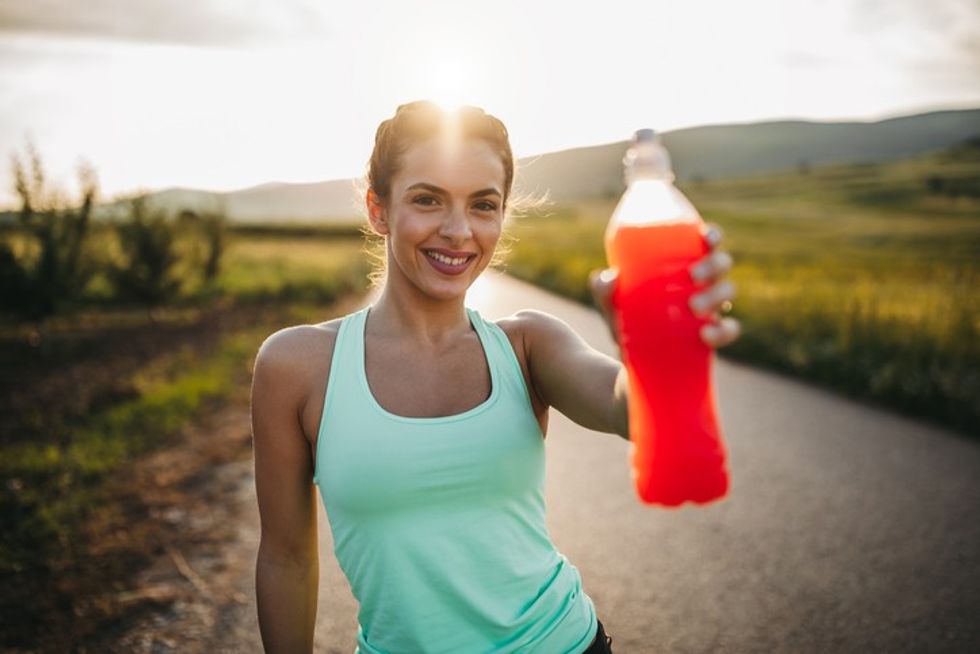
Virtue has expanded its range of natural energy drinks, with the recent introduction of a new natural and sugar-free range. Containing 80mg of natural caffeine from green coffee beans and enriched with b-vitamins, the new drinks are available in two flavours- Lemon & Lime and Berries.
There are a few caffeine-free energy drinks available too. Aimed at millennial parents, gym-goers and health-conscious on-the-go workers, a start-up has come up with “Mawé”, a vitamin drink set to rival the high-caffeine-and-sugar energy drink market.
CBD-infused functional drink is a very niche and nascent segment but with more and more Britons pledging to stay away from hard alcohols, the popularity of such products is expected to pick up in the coming times.
Endo Sport has a line of CBD-infused sports drinks which with 10mg of CBD per 500ml bottle, the company positions as both pre and post-workout drink.
What’s new
To quench the demand of newer flavours, Boost launched Mango energy drink- derived from real fruit extract- which is now proving to be a huge hit.
“We launched Mango Energy back in April 2021, which has had a great response. We are the only mainstream brand to offer this on-trend Mango flavour in a 250ml size can, which is one of the fastest growing flavours in the energy drink sector, growing at +22 per cent year-on-year in volume sales,” Hipkiss said, adding that new 250ml Mango Energy is available in 59p PMPs.
Barr Soft Drinks recently launched energy drink Rubicon Raw, an innovation which the makers claimed was built on a foundation of consumer insight. It uses 20 per cent real fruit juice, which together with caffeine from green coffee beans and B-vitamins provides a big “energy hit”.
The Rubicon Raw range comes in three variants – Raspberry and Blueberry, Orange and Mango and Cherry and Pomegranate, with natural flavours and no artificial colours.
The makers say that their energy drink “fuel” the lifestyle of people who want to get the “most out of life”.
Lucozade recently launched Lucozade Alert- a distinctive stimulation drink range in tropical and cherry flavours containing naturally-sourced caffeine and vitamin B3 which helps “reduce tiredness without compromising the classic Lucozade taste”.
Lucozade Alert range reported to have generated £1m in sales in under two months through wholesale and convenience stores. Building on the success of its Tropical Burst and Cherry Blast flavours, Lucozade Alert is now set to introduce a new flavour Lucozade Alert Original.
Making the announcement, Zoe Trimble, Head of Lucozade at Suntory Beverage & Food GB&I, stated that “75per cent of adults reported concerns about tiredness”, yet many shoppers still don’t think stimulant drinks are for them.
“This is why we brought Lucozade Alert to shelves last year; high in caffeine and with Vitamin B3 to help reduce tiredness. We’re delighted that we’re now combining these winning attributes with the much-loved unique taste of Lucozade Original to meet shoppers’ demand even further,” Trimble said.
Lucozade Alert Original will be available in 500ml PMP and non-PMP cans from February. Like the rest of the Lucozade range, the new flavour will be non-HFSS. More is still to come in the Lucozade Alert range.
Monster energy drinks also recently launched three new 500ml additions- Monster Mule, Monster Ultra Fiesta (both RRP £1.39/ PMP £1.35) and Monster Juiced Monarch (RRP £1.54/ PMP £1.45). Monster Mule is touted as the first ginger-flavoured energy drink in Great Britain and contains 32mg of caffeine per 100ml.
Monster Ultra Fiesta is mango flavoured and has zero sugar, while Monster Juiced Monarch is flavoured with peach and nectarine and contains real fruit juice.
Red Bull has also extended its multipack offering with the launch of a new Sugarfree Price Marked Multipack, which are now exclusively available to symbol and independent convenience stores. The new proposition is also set to be the number one low calorie multipack, delivering “£5.2 million in value” to the overall category, Red Bull said.
Good Earth’s new launch Good Earth Energy has been blended to appeal to energy drink fans who question the levels of sugar, caffeine and aftertaste they endure for their desired ‘pick up’.
With vegan friendly, natural ingredients Good Earth Good Energy is available in two flavours- Blood Orange & Tangerine and Raspberry & Blueberry. Each is available in cases of 12 x 250ml, a multipack of 6x4 250ml and single serve 250ml cans.
Tips for retailers
As the country crawls back to normal with pre-pandemic activities resuming amid increase in promotions and advertising strategies, the demand in this segment is projected to grow.
In this segment, “scientific” element is a critical marketing and selling proposition as new age drinks often target specific consumer needs, such as endurance or rapid recovery. At the same time, use of scientific jargon means the retailers very often also have to deal with consumer cynicism - overcoming which sometimes becomes tricky. Key here is to learn and know the segment well.
In this aisle, wider the range, better the sales.
Hipkiss advises retailers to stock a varied range from trusted brands that deliver on both price and quality to maximise impulse sales.
Flavour is the king here so retailers should stock up on a wide range of energy stimulation flavours to attract new shoppers to the fixture and capitalise on this growth opportunity.
Cans are perceived to be more portable in this segment for their on-to-go consumption and are regarded as the most preferred packaging types among consumers.
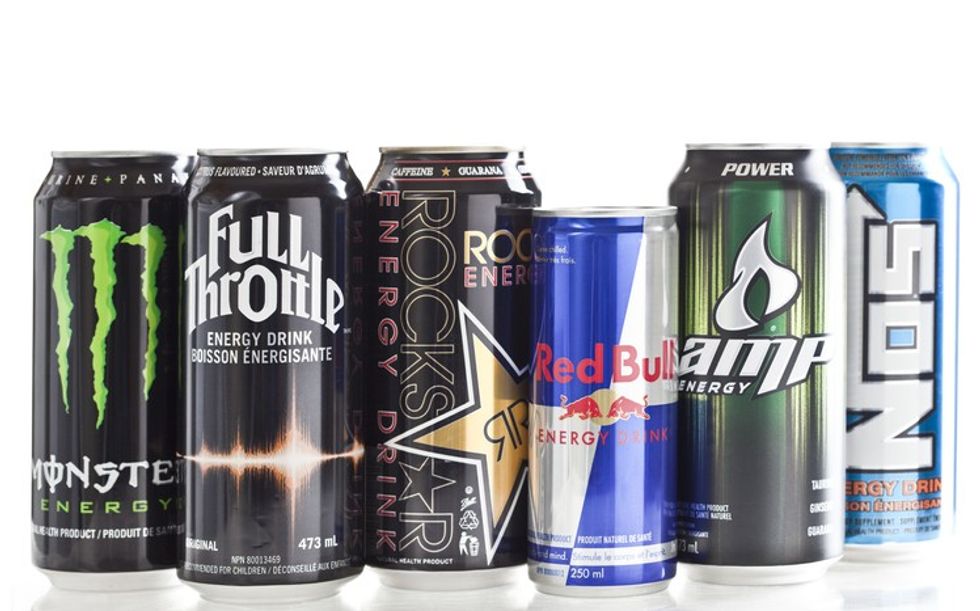
PMPs is definitely a win-win option for retailers as well as the buyers. In fact, data shows that 60 per cent of total soft drink sales in independent and symbol convenience stores happen through PMPs so retailers should ensure that their stores are well-stocked with multiple price packs of leading and trusted brands.
“Trends show that consumers are increasingly likely to seek out value propositions from trusted brands. By offering price-marked packs (PMPs), it allows independent retailers to help build consumer trust and give shoppers the confidence that they’re getting high quality great tasting soft drinks at fantastic price points, which is of growing importance in a post-Covid world.
“PMPs now account for over, and since the start of the pandemic. At Boost, we offer PMPs across our entire portfolio, as they communicate great value to the consumer whilst also offering excellent cash margins for the retailers,” informed Hipkiss.
Red Bull too banks upon multipacks to entice consumers.
“Multipacks are outperforming any other format, +34 per cent MAT and driving 85 per cent incremental growth.In the latest six months, Red Bull sold 21.4 per cent more sugar free volume through multipacks – with these variants also growing penetration by 20.4 per cent,” said Red Bull.
Retailers should make placement tricks and right merchandising as their secret weapon to push the visibility of such products and induce impulse purchase. Placing such range in close proximity to complementary categories, such as food-to-go and snacking, can be a huge factor in driving cross purchases.
Also, since energy drinks are increasingly used as alcohol mixers, placing them near the spirit section of the store is also a good idea to trigger impulse purchase. Not to forget the fact that such drinks are also perceived as a quick and easy cure for hangovers and a quick fix to carry on with routine the next day.
Hipkiss recommends that drinks should be stocked chilled and positioned in “easily accessible sites within the store, at eye level and restocked regularly to ensure optimum sales performance”.
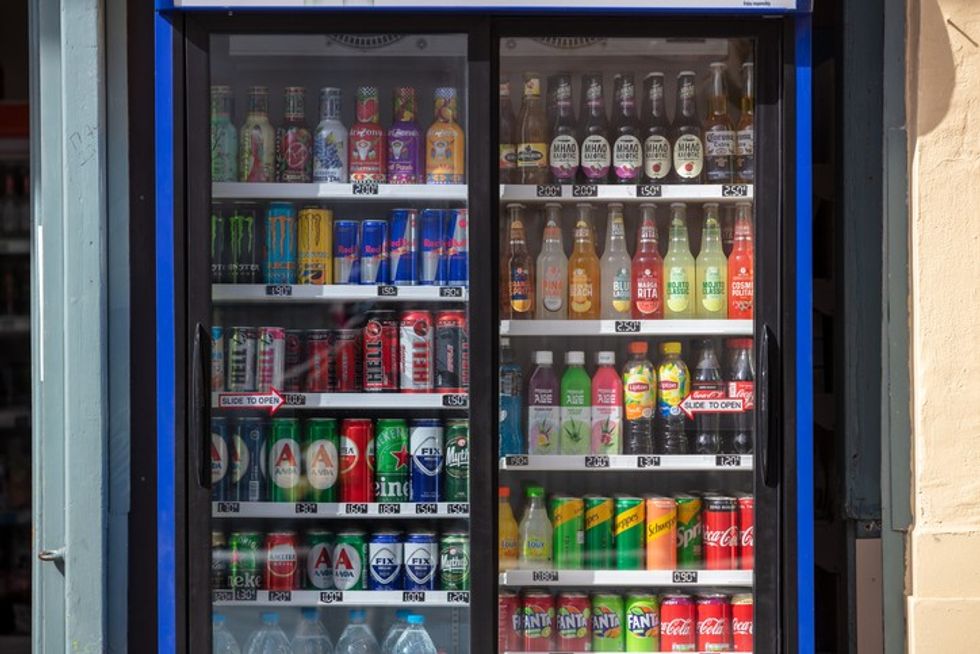
“We would also suggest dedicating at least a third of the chiller / fixture to the popular Energy category as £1 in every £3 spent on Soft Drinks in Independents is on an Energy Drink,” he suggested c-store owners.
Clever use of placement can play a key role in incremental sales here and retailers should think out of the box to place the drinks in the sections as well, like where shoppers are looking for protein supplements since researches show that 98 per cent of protein drink consumers also buy into sports and energy drinks.
Retailers can also promote their sports and energy drinks range by informing the availability of brands and new launches on their social media pages. Following the leading brands’ social media handles of the makers is an easy and quick way to know about the new product launches as well as to gauge what is “going viral” in this segment.
Store owners can also collaborate with local Instagram influencers who in turn can promote the availability of the product range in the store.
Conclusion
With fitness and overall good health on the top of Britons’ minds, an ideal sports energy drink should not only be energy-packed and refreshing, but it also be good in taste as well as “functional”.
While it seems too aspirational a demand, it is still very much achievable, thanks to the amazing line of constantly-evolving innovative products from the leading makers, thereby presenting a huge scope for convenience store owners to expand their sales and create a health-friendly brand image ahead of HFSS regulations.






